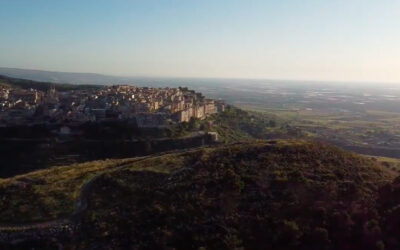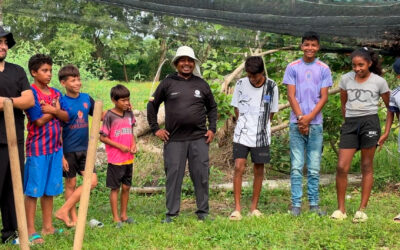 Indonesia is the fourth most populated country in the world, with some 240 million inhabitants, living in the 17,000 islands that comprise the Indonesian Archipelago. The house was inaugurated with a Mass and house blessing on 2 July 2011. It will be the first stable centre of the Focolare in Yogyakarta, a city on the island of Java, with some 3 million inhabitants and it is known as a centre of Javan art and culture. Why did the focolarini from nearby Singapore (one of the richest countries in the world) decide to move to a country with one of the lowest GDP index in the world, leaving behind excellent professions? In arriving at our decision, we took many things into consideration,” says Nicolas, one of the focolarini. “especially our decision to spread the charism of unity, and Indonesia, where the majority of the population is Muslim, is a land of great religious tolerance. It’s enough to recall one of the supporting columns of their Constitution which goes more or less like this: ‘We are many but one’, that is, unity in diversity. But it would be a long story to explain how God brought us to this point.” We came to know the people of the large Archipelago due to the frequent natural disasters which Indonesia has undergone in the past few years: tsunamis, earthquakes and the latest eruption of one of its volcanoes. The focolarini were generous with the local people, bringing forward a project for the victims. In this way many relationships were begun which, little by little, created a community, beginning with the youths. “Moreover,” Nicolas continues, “it’s a country that’s on the forefront, very open to interreligious dialogue, and our spirituality helps us to construct relationships of friendship and fraternity among members of the different religions who live in the country.” In fact, the population is comprised of Muslim faithful, Buddhists, Hindus and many other religions. Christians constitute 16% of the population.
Indonesia is the fourth most populated country in the world, with some 240 million inhabitants, living in the 17,000 islands that comprise the Indonesian Archipelago. The house was inaugurated with a Mass and house blessing on 2 July 2011. It will be the first stable centre of the Focolare in Yogyakarta, a city on the island of Java, with some 3 million inhabitants and it is known as a centre of Javan art and culture. Why did the focolarini from nearby Singapore (one of the richest countries in the world) decide to move to a country with one of the lowest GDP index in the world, leaving behind excellent professions? In arriving at our decision, we took many things into consideration,” says Nicolas, one of the focolarini. “especially our decision to spread the charism of unity, and Indonesia, where the majority of the population is Muslim, is a land of great religious tolerance. It’s enough to recall one of the supporting columns of their Constitution which goes more or less like this: ‘We are many but one’, that is, unity in diversity. But it would be a long story to explain how God brought us to this point.” We came to know the people of the large Archipelago due to the frequent natural disasters which Indonesia has undergone in the past few years: tsunamis, earthquakes and the latest eruption of one of its volcanoes. The focolarini were generous with the local people, bringing forward a project for the victims. In this way many relationships were begun which, little by little, created a community, beginning with the youths. “Moreover,” Nicolas continues, “it’s a country that’s on the forefront, very open to interreligious dialogue, and our spirituality helps us to construct relationships of friendship and fraternity among members of the different religions who live in the country.” In fact, the population is comprised of Muslim faithful, Buddhists, Hindus and many other religions. Christians constitute 16% of the population.  “It was moving, Xiong adds, “to see the joy in these people and how they prepared things, down to the smallest detail, with such a sense of hospitality which is their characteristic. More than 200 people came, many youths, with some Muslims among them.” People arrived from Sumatra (Medan), Java (Jakarta and Semarang), from Borneo (Kalimantan), Sulawesi, West Timor, and even Singapore and Malaysia (Johor and Penang). Hans Jurt, who is responsible for the focolarini worldwide, was also present together with a few other men and women focolarini from neighbouring Asian countries. Hans said: “We realized that leaving Singapore and moving to Yogyakarta was following God’s plan, a step that He made us take.” It is very nice to see how the community of Singapore feels that it has given its focolare to Indonesia. [nggallery id=65]
“It was moving, Xiong adds, “to see the joy in these people and how they prepared things, down to the smallest detail, with such a sense of hospitality which is their characteristic. More than 200 people came, many youths, with some Muslims among them.” People arrived from Sumatra (Medan), Java (Jakarta and Semarang), from Borneo (Kalimantan), Sulawesi, West Timor, and even Singapore and Malaysia (Johor and Penang). Hans Jurt, who is responsible for the focolarini worldwide, was also present together with a few other men and women focolarini from neighbouring Asian countries. Hans said: “We realized that leaving Singapore and moving to Yogyakarta was following God’s plan, a step that He made us take.” It is very nice to see how the community of Singapore feels that it has given its focolare to Indonesia. [nggallery id=65]
Share the suffering of those nearby
Share the suffering of those nearby




0 Comments